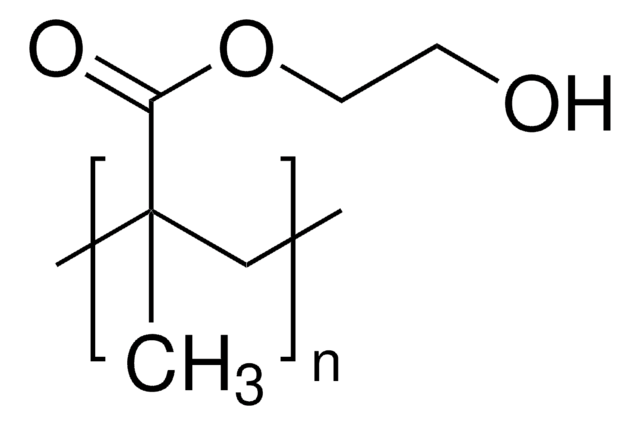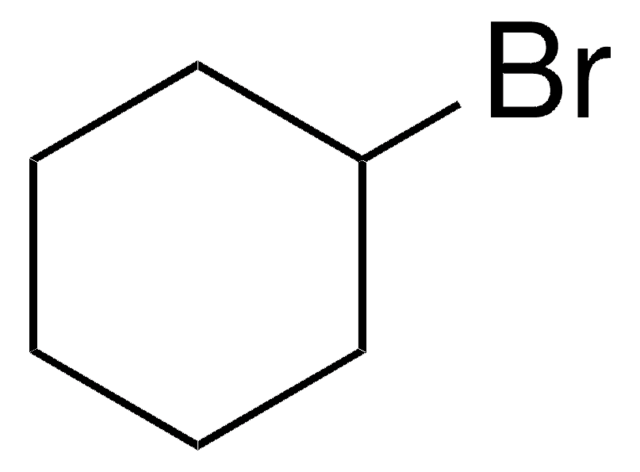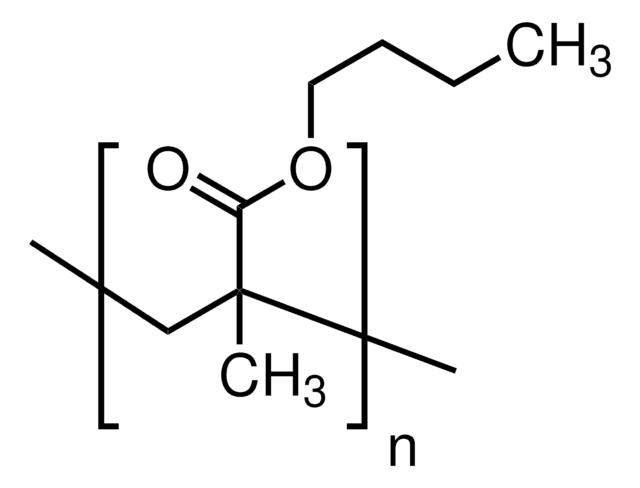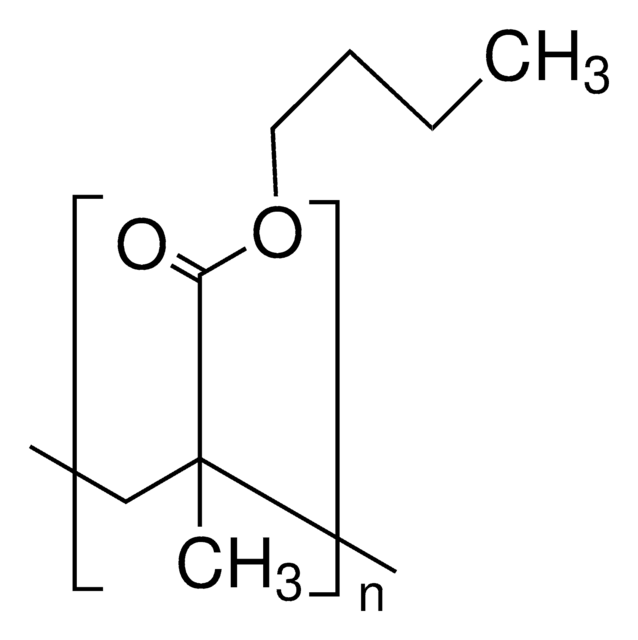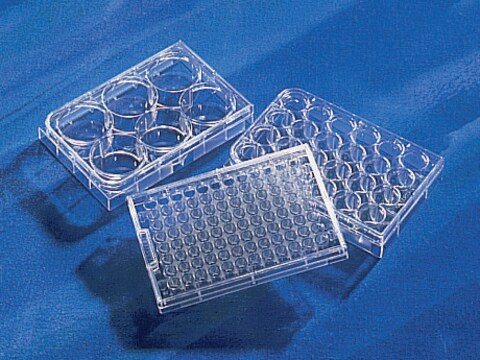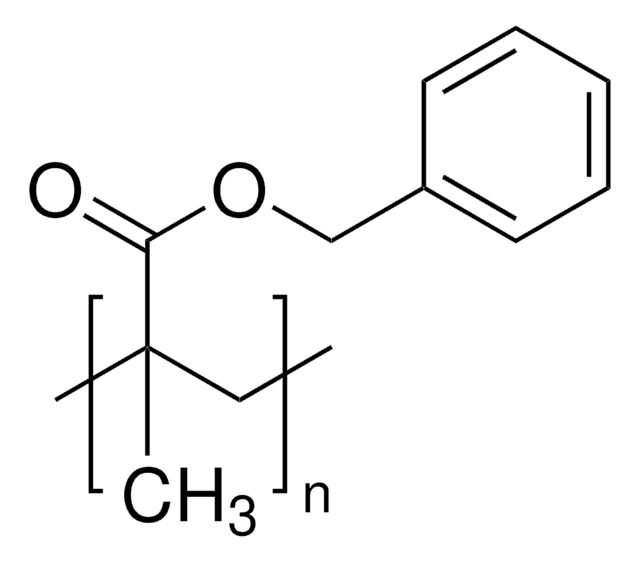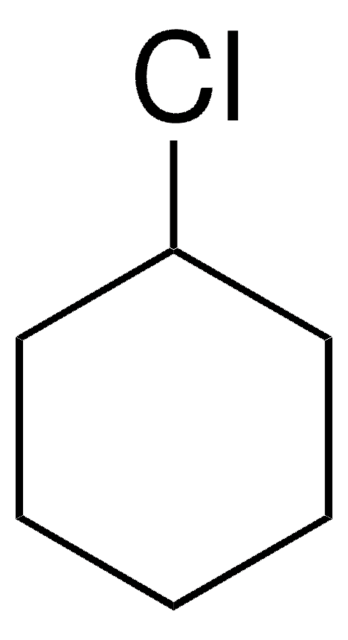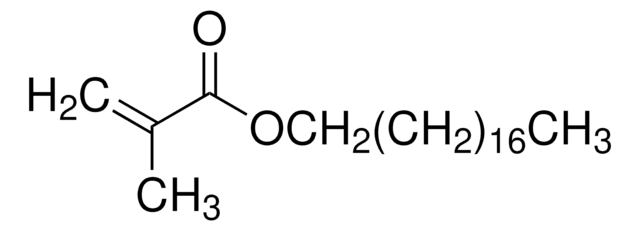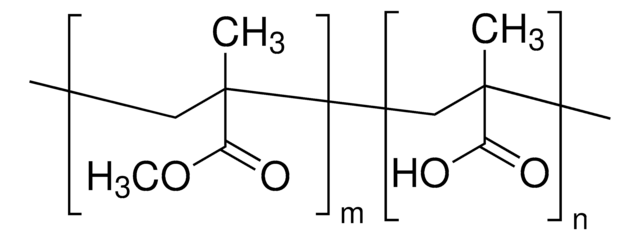182079
Poly(2-ethylhexyl methacrylate) solution
average Mw ~100,000 by GPC, in toluene
Synonyme(s) :
2-Ethylhexyl methacrylate homopolymer, Poly(ethylhexyl methacrylate)
About This Item
Produits recommandés
Densité de vapeur
1.2 (37 °C, vs air)
Niveau de qualité
Forme
liquid
Poids mol.
average Mw ~100,000 by GPC
Concentration
in toluene
Poids
Unit weight does not include weight of solvent.
Température de transition
Tg −10 °C
Densité
0.908 g/mL at 25 °C
Chaîne SMILES
CCCCC(CC)COC(=O)C(C)=C
InChI
1S/C12H22O2/c1-5-7-8-11(6-2)9-14-12(13)10(3)4/h11H,3,5-9H2,1-2,4H3
Clé InChI
WDQMWEYDKDCEHT-UHFFFAOYSA-N
Catégories apparentées
Description générale
Application
Mention d'avertissement
Danger
Mentions de danger
Conseils de prudence
Classification des risques
Aquatic Chronic 3 - Asp. Tox. 1 - Repr. 2 - Skin Irrit. 2 - STOT RE 2 - STOT SE 3
Organes cibles
Central nervous system
Code de la classe de stockage
3 - Flammable liquids
Classe de danger pour l'eau (WGK)
WGK 3
Point d'éclair (°F)
Not applicable
Point d'éclair (°C)
Not applicable
Faites votre choix parmi les versions les plus récentes :
Déjà en possession de ce produit ?
Retrouvez la documentation relative aux produits que vous avez récemment achetés dans la Bibliothèque de documents.
Les clients ont également consulté
Articles
Self-assembled monolayers (SAMs) have attracted enormous interest for a wide variety of applications in micro- and nano-technology. In this article, we compare the benefits of three different classes of SAM systems (alkylthiolates on gold).
Notre équipe de scientifiques dispose d'une expérience dans tous les secteurs de la recherche, notamment en sciences de la vie, science des matériaux, synthèse chimique, chromatographie, analyse et dans de nombreux autres domaines..
Contacter notre Service technique